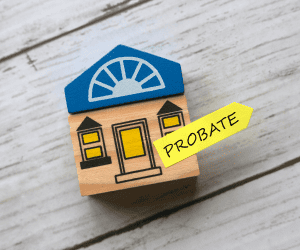Helping you empower life's second half
Empowering life’s second half is all about providing you with the resources, opportunities, and support you need to thrive during this stage of life. You will find support across a range of areas on our site.


Empowering life’s second half is all about providing you with the resources, opportunities, and support you need to thrive during this stage of life. You will find support across a range of areas on our site.



















With our easy guides and tools, managing your money has never been simpler. Get info on pensions, credit scores, mortgages, and saving tips to help your money go further.
Explore various legal options pertaining to later life in this section. Our carefully curated articles provide valuable insights into legal matters such as estate planning, wills, power of attorney, and more. Discover essential information to ensure proper legal protection and decision-making during the later stages of life.

Explore how the Court of Protection safeguards vulnerable individuals’ rights and interests and ensures legal support and protection for people of all ages.

Explore essential information to make informed decisions on estate planning to Read our expert advice on managing and securing your assets and affairs for the future.

Power of Attorney can empower individuals to appoint someone to make crucial decisions on their behalf. Explore the various types and benefits of Power of Attorney to ensure proper legal protection for you or your loved ones.

Explore our expert guidance on the legal process of administering an estate and distributing assets after a person’s passing.

Explore the different types of trusts and how they can help secure your financial future, as well as that of your family.

No one likes to think about what will happen when they pass. But, leaving a will is important to make sure your final wishes are carried out and your loved ones receive what they’re entitled to. Read our expert guidance on wills to ensure your assets and final wishes are legally protected and distributed as intended.
Discover a range of care options and services to make well-informed decisions about the most suitable care plan for the needs of you or your loved ones.

Home care can be a cost-effective and convenient way of maintaining the well-being and independence of your or your loved one. Read our expert advice on finding a home care provider, the costs involved, and potential funding options.

Understanding the ins and outs of live-in care can be overwhelming, particularly when facing the task of making the best decision for you or your loved ones. That’s why our experts are here to outline the role of a live-in carer, their duties, and the costs involved to help you make better-informed care decisions.

Discover how residential care facilities offer a supportive and safe living environment for individuals who require assistance with daily activities and personal care.

Explore our carefully curated directories featuring professional, legal, and financial advisors specialising in later-life matters. Find expert assistance to make informed decisions and receive personalised support for your specific needs and concerns.
Join our online community, where you can connect with like-minded individuals, share experiences, and access valuable resources related to later-life topics.
Discover lifestyle insights and resources in this website section focused on mid and later life. Explore topics that address various lifestyle issues, helping you lead a fulfilling and informed life during this stage.
Explore how technology can enhance independence, safety, and connectivity for seniors. Find useful insights and recommendations to harness the power of technology to improve the quality of life during your golden years.

Learn essential tips and best practices for maintaining internet safety during later life, ensuring a secure online experience. Explore valuable insights to protect personal information and stay safe while navigating the digital world.

Discover a variety of technology accessories tailored for seniors which can enhance convenience and accessibility in daily life. Find practical recommendations to optimise technology usage and improve overall comfort.

This section offers valuable information and insights related to TV services and options for seniors, helping them stay entertained and informed with the latest content and features.

Explore how to access and utilise online resources to enrich daily life during later stages. Discover the benefits and practical tips for staying connected and informed through the internet.
This section discusses travel information for seniors, offering insights and tips to plan safe, enjoyable, and memorable journeys during later life. Explore resources to maximise travel experiences, ensuring comfort and convenience throughout your adventures.
Discover a wealth of insights and tips to make informed choices while purchasing products and services that cater to your specific needs during later life. Explore convenient and accessible ways to shop for essentials and leisure items to enhance your lifestyle.

Join our vibrant online community and connect with like-minded individuals to share experiences, seek support, and engage in discussions related to various topics concerning mid and later life.
